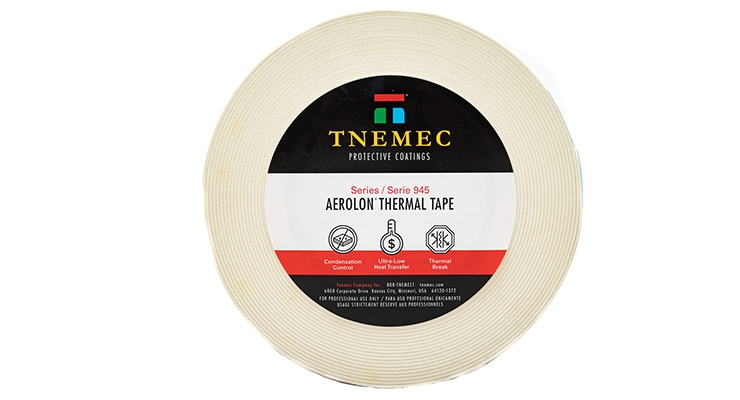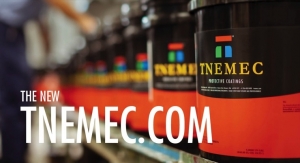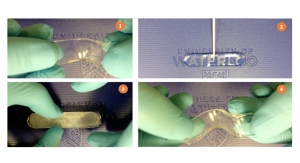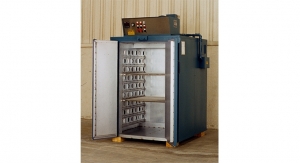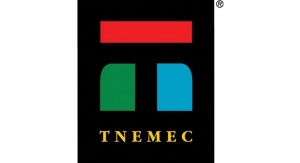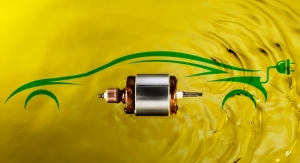03.13.19
Tnemec Company, Inc. introduced a self-adhesive insulating tape for controlling condensation and providing thermal efficiency on architectural, industrial, water and wastewater applications.
Series 945 Aerolon Tape contains a proprietary blend of insulative particles for exceptionally low thermal conductivity, according to Andy Hoffman, director – Insulation and Specialty Products.
“The thermal properties of Aerolon Tape reduce condensation caused by the difference in the temperature between the two sides of a surface,” Hoffman said. “It has been used to prevent condensation on pipes, tanks and in areas where thermal bridging is a concern.”
Available in multiple widths that are 30 feet long and 1.5 mm thick, the insulative tape can be applied in multiple layers to achieve desired thickness or in combination with Series 971 Aerolon Acrylic, a fluid-applied thermal insulating coating for use on a variety of substrates.
“Architects and contractors appreciate the product’s speed of installation and cold weather application,” Hoffman said. “On projects where construction schedules encounter temperatures too cold for Aerolon Acrylic to be spray applied, work can continue using Aerolon Tape. When temperatures reach below 50°F, use of an electric heat gun can ensure proper bonding of the adhesive.”
Manufactured with a pressure-sensitive adhesive for easy installation, the insulating tape is excellent for controlling condensation on processing equipment and piping with surface temperatures less than 150°F (66°C). The tape is ideal for insulating smaller-diameter structures and helps eliminate the common overspray issues when fluid-applied insulating coatings are used.
“In the food processing industry, where spray-applied coatings are more restricted, Aerolon Tape is an attractive option,” Hoffman said. “Besides providing improved thermal efficiencies, it helps resist corrosion under insulation that can create havoc on metal piping.”
“The thermal properties of Aerolon Tape reduce condensation caused by the difference in the temperature between the two sides of a surface,” Hoffman said. “It has been used to prevent condensation on pipes, tanks and in areas where thermal bridging is a concern.”
Available in multiple widths that are 30 feet long and 1.5 mm thick, the insulative tape can be applied in multiple layers to achieve desired thickness or in combination with Series 971 Aerolon Acrylic, a fluid-applied thermal insulating coating for use on a variety of substrates.
“Architects and contractors appreciate the product’s speed of installation and cold weather application,” Hoffman said. “On projects where construction schedules encounter temperatures too cold for Aerolon Acrylic to be spray applied, work can continue using Aerolon Tape. When temperatures reach below 50°F, use of an electric heat gun can ensure proper bonding of the adhesive.”
Manufactured with a pressure-sensitive adhesive for easy installation, the insulating tape is excellent for controlling condensation on processing equipment and piping with surface temperatures less than 150°F (66°C). The tape is ideal for insulating smaller-diameter structures and helps eliminate the common overspray issues when fluid-applied insulating coatings are used.
“In the food processing industry, where spray-applied coatings are more restricted, Aerolon Tape is an attractive option,” Hoffman said. “Besides providing improved thermal efficiencies, it helps resist corrosion under insulation that can create havoc on metal piping.”

